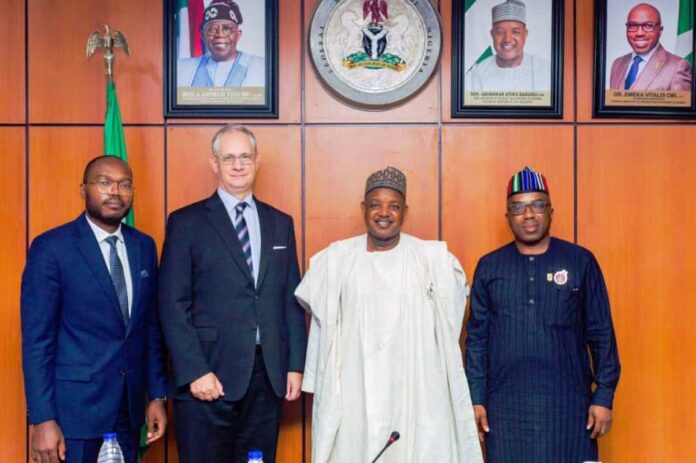The Human Capital Opportunities for Prosperity and Equity (HOPE) project in the nation will benefit from a $500 million financing facility provided by the World Bank to the federal government.
Sen. Abubakar Atiku Bagudu, the Minister of Budget and Economic Planning, made this announcement yesterday when Axel Schimmelpfennig, the head of the International Monetary Fund’s (IMF) Nigerian mission, paid him a courtesy call.
The minister claims that the credit facility will improve the accessibility and efficiency of funding for primary healthcare and basic education across the Federation’s states. According to a government release, the money would improve teacher recruitment, deployment, and performance management while also increasing accountability and transparency for basic education and primary health care.
While expressing gratitude for the World Bank’s assistance, Bagudu clarified that the Nigerian Constitution serves as the legal framework that establishes the guidelines and procedures that govern the budget process. It also gives the Federal and State governments the authority to make expenditures in the previous year to cover expenses required to continue providing government services.
Bagudu went on to say that the Bola Ahmed Tinubu administration’s changes were designed to create and execute tax and economic reforms that would ensure the nation’s Public Financial Management (PFM) systems were more effective. “To put the Nigerian economy on the right track, economic reforms are necessary decisions,” he said.
Even though Nigeria is facing several difficulties, including pain for its residents due to the withdrawal of fuel subsidies, foreign exchange floating, and electricity changes that divided the country’s population into bands, he reassured the IMF Team that the country is headed toward economic recovery.
Although the minister acknowledged the IMF’s readiness to assist Nigeria, he demanded additional assistance from international partners in the area of resource mobilization so that the government could give advancements in every economic sector.
Schimmelpfennig had previously stated that he was in the nation to discuss with the Minister the process of Nigerian budgeting, with a focus on the concurrent implementation of the 2023/2024 budgets and supplemental budgets in the same year in preparation for the publication of the 2025 annual report of the World Bank.
He praised the federal government’s tax reforms, promising the country greater IMF support for Nigeria’s developmental demands because higher income generation will guarantee more advancements for Nigerians.

